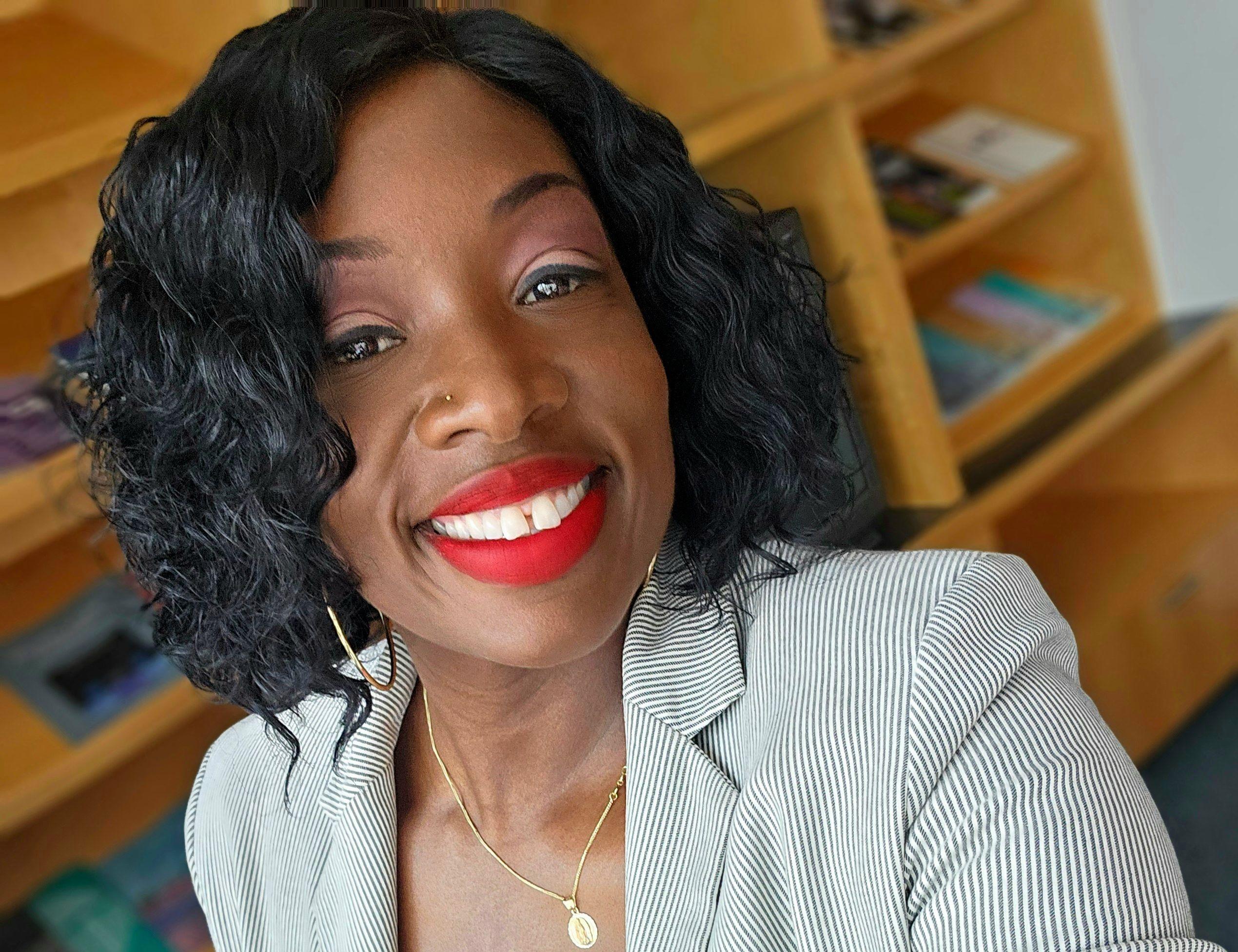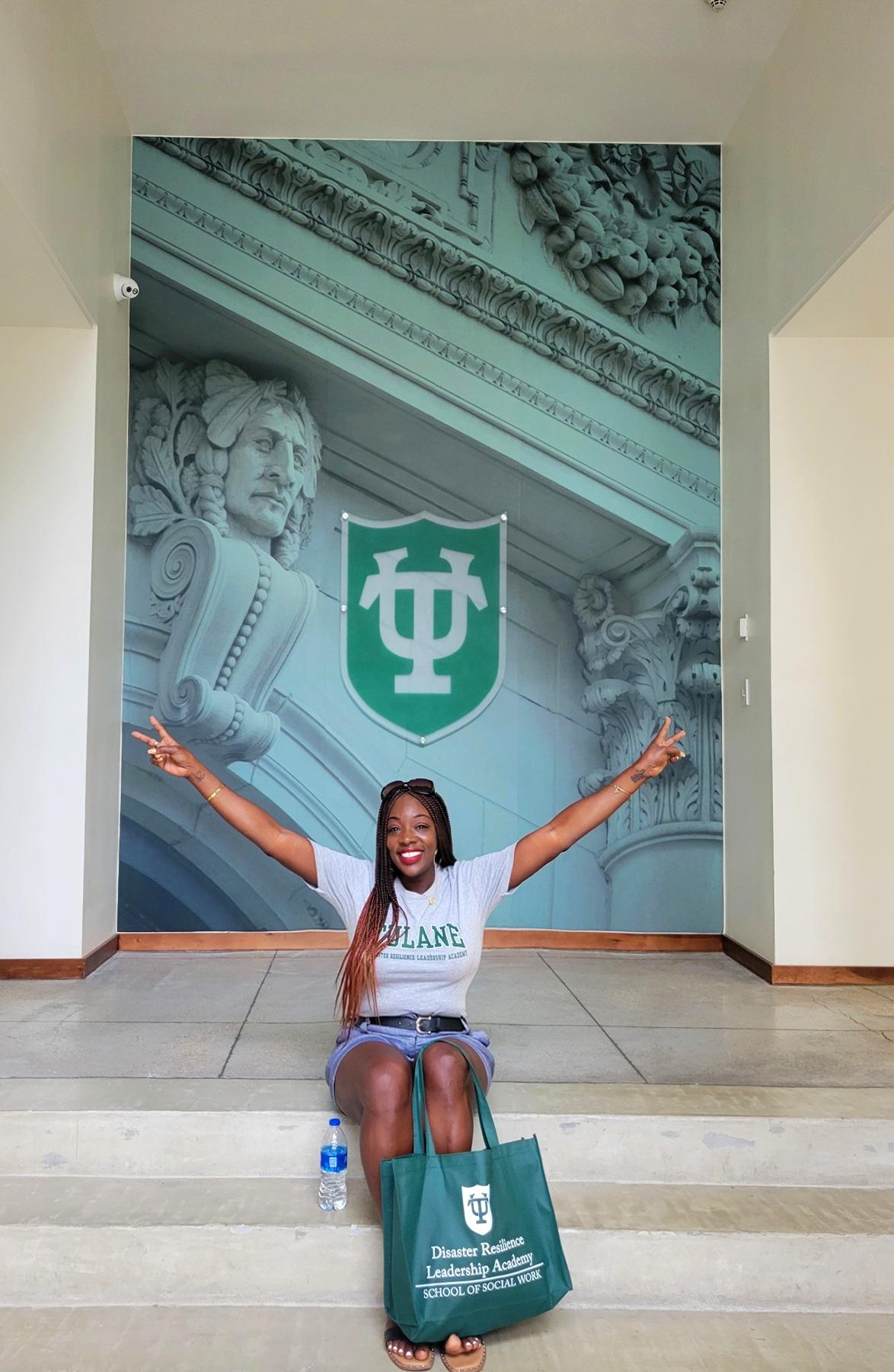MSW/MS-DRL student leads national healthcare access program
Before Amy Gyau-Moyer decided to get her dual Master of Social Work and Master of Science in Disaster Resilience Leadership (MSW/MS-DRL), she worked in increasing healthcare access for more than two decades.
Gyau-Moyer – who holds an Associate’s Degree in Mental Health, a Bachelor of Science in Healthcare Administration, a Master of Science in Management and Public Relations, and a Master of Business Administration – wasn’t looking for another degree when she first learned about Tulane School of Social Work’s Disaster Resilience Leadership Academy (DRLA).
“During COVID, I see this ad for the MSW/MS-DRL. I got my previous master's degrees in 2009, I work full-time, I’m a mom and a caregiver – basically, I wasn’t looking at schools,” Gyau-Moyer said. “But then I learn about this program I could see myself in, that I knew I could learn from.” And the rest was history.
The lessons learned in the Gulf are a blueprint for early intervention and prevention.
Amy Gyau-Moyer
Community Health & Social Work
Gyau-Moyer recalled the stress she felt during perhaps the most significant disaster of our generation – the COVID pandemic. Originally from Ghana, she was accustomed to a strong foundation of community. In fact, her statement of purpose was entitled ‘It Takes a Village.’
“I remember when my dad passed away, over 5,000 people came to his funeral. It went on for 4 days. My family felt so supported,” Gyau-Moyer said. “COVID was difficult for me to fathom. I wasn’t used to seeing people struggling on their own, without community.”
The Disaster Resilience Leadership program offered community-centered solutions to emergencies like the pandemic, which is just the kind of knowledge Gyau-Moyer needed in her community health work and in her current role as the Director of the National Academy of Medicine’s Culture of Health program.
“I’m so happy about this role because I don’t see a lot of people who look like me in the research and science space,” Gyau-Moyer said. “I don’t see many social workers in this space, either. Things are far from where they need to be, but if you’re committed to something, why wouldn’t you do it? Why are we here if we’re not going to speak up for the things that we’re passionate about?”
Gyau-Moyer is championing a multi-year collaborative effort to identify strategies to aid in dismantling structural racism and lead to more just health outcomes for historically marginalized and excluded communities.
“To be able to lead the work of this program and identify community-driven ways to increase health equality in research and science, and to see this work being done on a national and global level with an organization like NAM, is just incredible,” she said.
New Orleans & Disaster Resilience Leadership
Despite being an online student working in Washington, D.C., Gyau-Moyer feels a deep connection with New Orleans.
“I have this love for New Orleans and the resilience of its people that was cultivated through DRLA and my in-person experiences on the ground through the program’s learning institutes. Communities in the Gulf are innovators in their own right,” she said. “The lessons learned in the Gulf are a blueprint for early intervention and prevention. They apply to cities in Maryland that flood every time it rains. Even in California with the wildfires, we can learn from the experts and the lived experiences in the Gulf to inform emergency mitigation and come up with solutions.”
Gyau-Moyer is already implementing the resilience and mental healthcare strategies she’s learning into her public health work. By understanding the way that systems of oppression create a lack of healthcare access, she has been able to better understand the problems facing healthcare providers in the United States.
“My experience at Tulane School of Social Work has shaped my life. I’m extremely happy that I chose social work, that I chose this program. These last few years have caused me to pause and reflect on the work that matters to me,” Gyau-Moyer said. “All my life, I want to do work that matters.”


